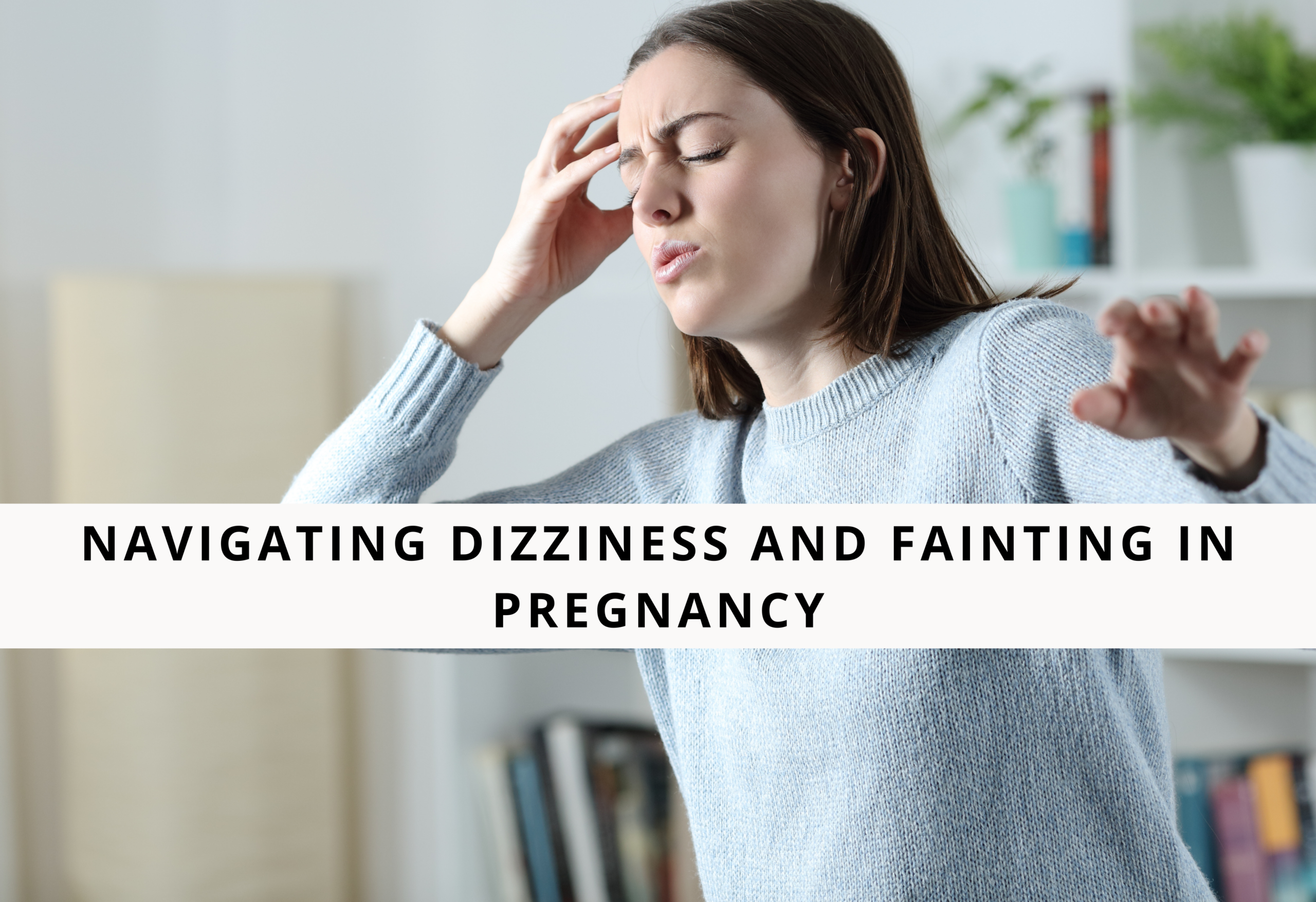Navigating Dizziness and fainting in Pregnancy: Understanding And Relief
Pregnancy is a journey filled with many changes, not all of which are visible. For instance, dizziness and fainting in pregnancy can catch many by surprise, affecting almost 5% of pregnant individuals at some point. Understanding why this happens, how to manage it, and when it’s time to seek further medical advice is crucial for your health and well-being during this special time.
Why Dizziness and Syncope Occur in Pregnancy
Dizziness and fainting episodes during pregnancy, particularly common in the late second and third trimesters, stem from several physiological changes your body undergoes. These include decreased systemic vascular resistance leading to vasodilation and venous pooling in the legs, which in turn can cause a drop in blood pressure and reduced cerebral blood flow. Additionally, postural hypotension from rapid position changes, hypoglycemic episodes, and the pressure of the growing uterus on the inferior vena cava in the third trimester can all contribute to these sensations.
Key Recommendations for Self-Care
To help manage dizziness and prevent syncope, consider the following tips:
- Rise Slowly: Whether from bed or a chair, take your time moving to a standing position to allow your body to adjust to reduce the possiblity of experiencing dizziness and fainting in pregnancy.
- Minimize Standing: Avoid long periods of standing. If you must stand, try walking in place to promote blood flow.
- Frequent, Small Meals: Eating small meals or snacks every few hours can help prevent hypoglycemia, a common cause of dizziness.
- Stay Hydrated: Drink plenty of water throughout the day to maintain blood volume and pressure.
- Compression Stockings: If your job requires prolonged standing, compression stockings can help prevent venous pooling in your legs.
- Stay Cool: Overheating can exacerbate dizziness and fainting in pregnancy, so try to keep your environment cool and well-ventilated.
- Avoid Lying on Your Back: Especially in the third trimester, lying on your back can compress major blood vessels and cause dizziness.
When To Call The Midwife
While dizziness and syncope can be part of normal pregnancy changes, certain symptoms warrant further evaluation:
- Chest Pain or Significant Shortness of Breath: These could be signs of an underlying cardiac issue, which is a leading cause of maternal mortality.
- Loss of Consciousness: Especially if it results in injury or occurs alongside other alarming symptoms like chest pain.
- Recurrent Episodes: Frequent dizziness or fainting, particularly if it starts in the first trimester, may indicate the need for a specialist’s evaluation.
Remember, these physical changes, while common, don’t have to be endured in silence or discomfort. Understanding the physiology behind dizziness and fainting in pregnancy, coupled with simple self-care measures, can significantly improve your experience. However, always listen to your body—if something feels off, or if you experience any concerning symptoms, reaching out to your midwife or healthcare provider is paramount. Your health and safety, as well as your baby’s, are always the top priority.
Dizziness and Fainting During Pregnancy
1. Why do I feel dizzy during pregnancy?
Dizziness during pregnancy is often caused by hormonal changes that lead to increased blood flow to the baby but decreased blood flow to your brain, resulting in light-headedness. Other factors include low blood sugar, dehydration, or quick changes in your position.
2. Is it normal to faint while pregnant?
Fainting (syncope) can happen during pregnancy, especially in the late second and third trimesters, due to the normal physiological changes your body goes through. While it’s relatively common, it’s important to discuss any episodes of fainting with your healthcare provider to rule out underlying conditions.
3. How can I prevent dizziness during pregnancy?
Preventing dizziness involves several simple steps: stay hydrated by drinking plenty of fluids, eat small and frequent meals to keep your blood sugar stable, avoid standing for long periods, and rise slowly after sitting or lying down to prevent sudden drops in blood pressure.
4. What should I do if I feel like I’m going to faint?
If you feel faint, lie down on your left side to increase blood flow to your heart and brain. If you can’t lie down, sit with your head between your knees. This helps prevent a fall and ensures you and your baby remain safe. Always inform your healthcare provider about any fainting episodes.
Additional Resources about Dizziness and Fainting During Pregnancy
How to Handle Dizziness During Pregnancy From Nationwide Children’s Hospital
Dizziness during pregnancy: When is it a concern? from The American Heart Association
Dizziness During Pregnancy from the American Pregnancy Association




